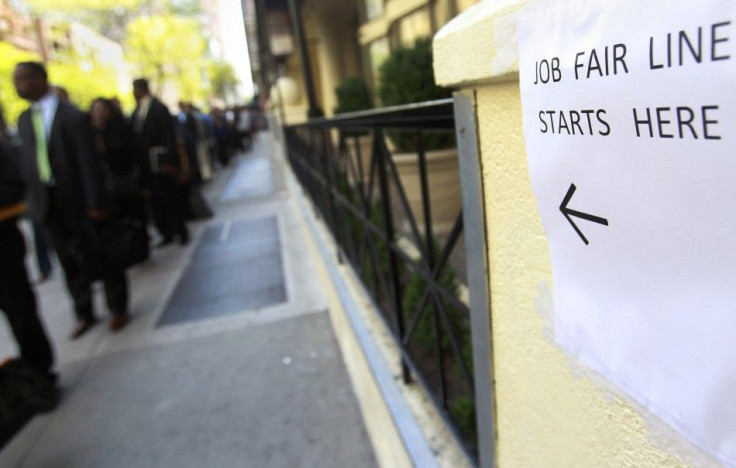US Economy Is In Recession Right Now: Business Cycle Expert

The U.S. is currently in a recessionary cycle and, no matter what they say, there's nothing policymakers can do to stop that.
That's according to Lakshman Achuthan, co-founder of the Economic Cycle Research Institute, who told Bloomberg TV host Tom Keene Tuesday, I think we're in a recession already.
Achuthan, who co-founded the research institute and publishes a widely followed leading indicators index, has been warning about deteriorating economic data since late last year, and made a point of noting he believes people should understand an unchecked slowdown across different areas of the business cycle -- which he says is occurring at the moment -- is guiding his use of what is known in economics as the R word. The textbook definition of a recession involves two consecutive quarterly periods of GDP contraction, which the U.S. is not experiencing. First-quarter GDP was 1.9 percent. The second-quarter GDP statistics have not been announced yet.
It is not all about GDP. It is about jobs. It is about income and sales. A recession is a vicious interplay among output, input, employment, income and sales, Achuthan said, noting as an example that, during 2001 you can't find two negative quarters in a row, yet you lost 3 million jobs. Or half the value of the NASDAQ. How are you going to tell someone that wasn't a recession?
It is very rare that you know you're going into recession when you're going into recession. It often takes some big hit on top of the head. In the last recession, it took Lehman to wake people up, and the recession before, it took 9/11, he added.
Achuthan's comment appear to be a doubling-down on a controversial series of previous calls stating a recession was imminent, including one made on Sept. 30, during a turbulent period in financial markets that saw the S&P downgrade of U.S. sovereign credit and an intensification of the crisis in Greece. U.S. economic indicators roared back up after that, with employment and manufacturing activity rising sharply in the winter and early spring before beginning to show weakness once again since March.
Yet even if Achuthan's call proved controversial at the time, his institute is still widely respected as an authority on U.S. economic conditions. The show on which Achuthan appeared, on the other hand, is seen as one of the wonkier, more restrained programs on financial television.
Adding to the assertion that we had already entered a contractionary leg in the business cycle, Achuthan pooh-pooed the idea that somehow government or a central bank will stave off a recession.
We have entered these so-called yo-yo years of weaker expansion since the mid-1970s, Achuthan commented, noting that dynamic has destroyed people's ability to earn their way out of a slump.
We have not been freaked out by it because the business cycle has been pretty mellow over the last 20-25 years. Until now.
© Copyright IBTimes 2024. All rights reserved.





















